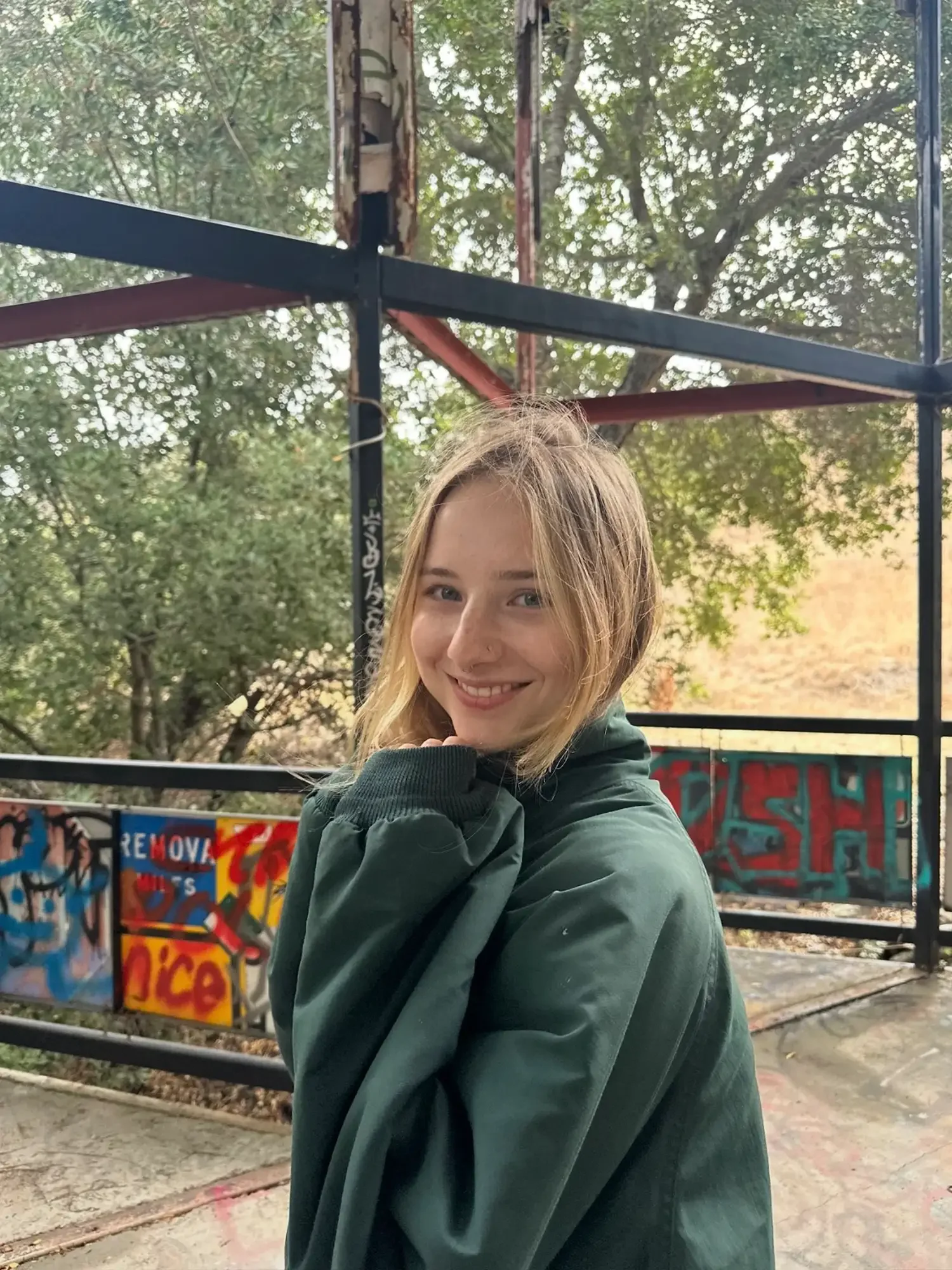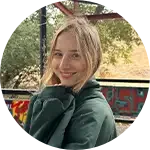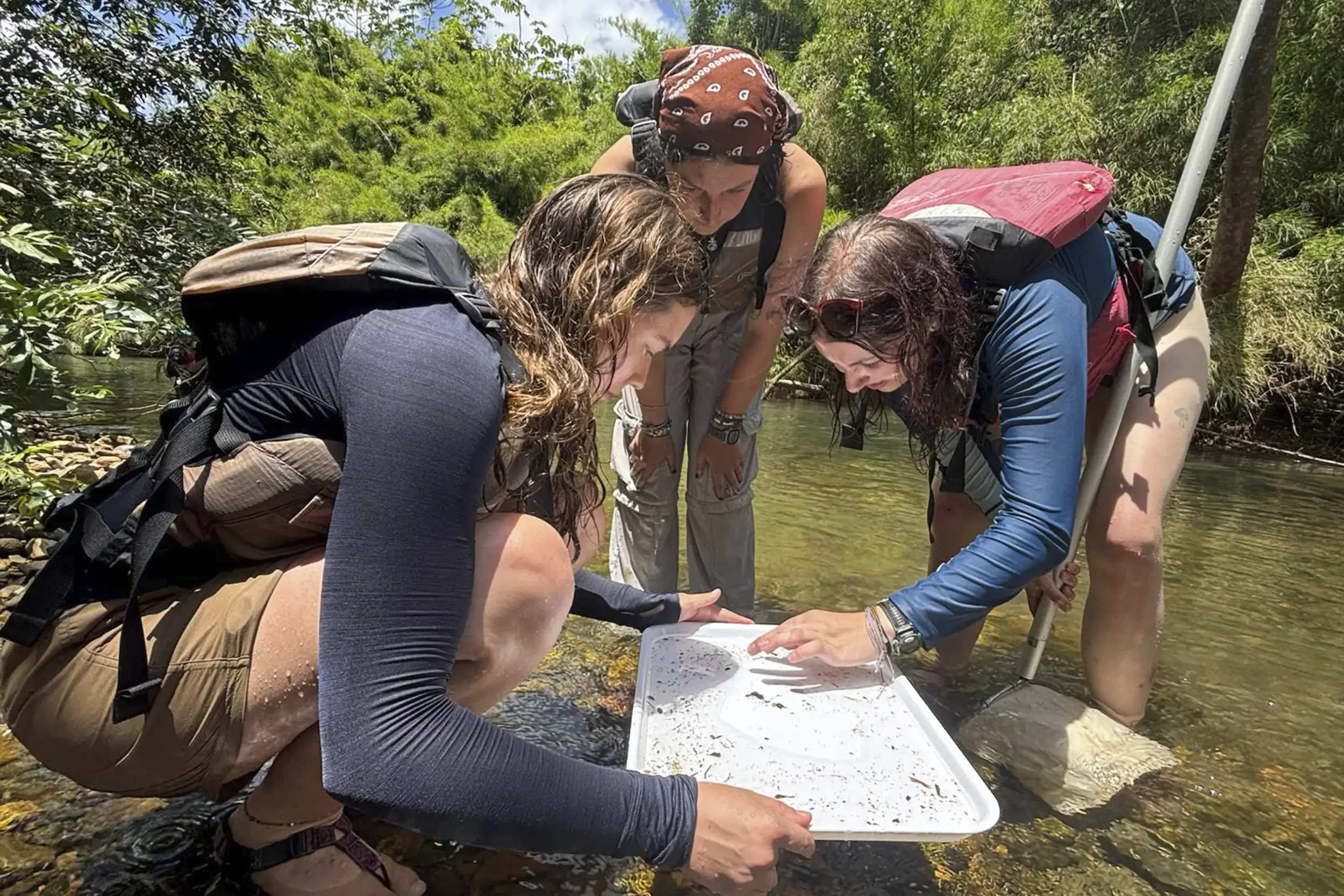Program Details
Location: Belize City, Belize
Dates: Winter 2027: January 20—March 4, 2027
Applications: Accepted on a rolling admission basis
Accommodations: Primarily camping or rural lodge
Credits: 15 quarter credits or 10 semester credits
Language: English instruction
Courses: Environmental Wildlands Studies, Environmental Field Survey, Wildlands Environment and Culture
Prerequisites: One college level course in environmental studies, environmental science, ecology or similar. 18 years of age
Program Costs
Belize Winter 2027
$ 150 Application Fee
$ 7,750 Program Fee
$ 4,950 In-Country Logistics Fee
$ 1,100 Estimated Airfare and Mandatory Travel Insurance
$ 400 Estimated Food and Personal Spending
$14,350 Total Estimated Cost
Winter 2027: Program fees due by November 1, 2026
The Program
Join us in the Neotropics for a fascinating journey into Belize’s megadiverse ecology and cultural mix, as we carry out field investigations in support of real conservation challenges. Due to Belize’s rich biodiversity and its relative isolation, much remains unknown about the nation’s flora and fauna, and even what is known is not always well understood. The opportunity for discovery and deep learning awaits us on many levels.
Our team conducts a wide range of ecological research and monitoring, drawing on scientific and naturalist observations, species identification and behaviors, and connections with local communities. Traversing the country from ‘ridge to reef’, we will explore and monitor the biodiversity across Belize’s key terrestrial and coastal ecosystems: rainforests, savannahs, wetlands and riparian zones, and coastal mangroves and reefs. We will apply different monitoring methodologies to assess the effectiveness and long-range sustainability of resource management strategies in Belize’s protected natural areas.
We will follow the tracks of jaguars and tapirs off the beaten path, propose solutions for the predator-human conflict in communities seeking answers, and explore magnificent, ancient Maya cities to shed some light on how this ancient civilization lived in harmony with the exuberant surrounding nature that they worshipped.
Off the Belize coast exists the second-largest barrier reef in the world. Studded with mangroves, seagrass beds and coconut-palmed cayes, and guarded by atolls to the east, the 600-mile-long reef is ecologically complex and intimately tied to the rainforests through its many water courses that deliver nutrients to the sea. In this system, dazzling numbers and varieties of plants and animals are supported, including thirty coral species, sea turtles, manatees, and over 250 varieties of fish, living in and along the reef system. Snorkeling through the reef environment, we will study the ecology of this vital system, assess the nature of human interactions, and propose and execute solutions to recover blue ecosystems under the framework of ecological restoration.
Belize is also a land inhabited by a fascinating mix of cultures, from Creole people to modern Mayas. Our studies invite and encourage meaningful interaction with local communities, and at times, we may find ourselves as their guests. Our ethnographic conversations (informal interviews) will allow us to gain first-hand insight into personal histories and perceptions of the country from the various groups living within its borders. In this manner, we will develop a sense of how the different cultures view themselves in relation to the land, the ‘nation’ and how the concepts of conservation and stewardship vary across cultural lines and through time. We will also consider the effects, both environmental and economic, of Belize’s vast protected area network on local communities, as well as the enhancement or degradation of their cultural senses of history, place and home, and how some of them are trying to rebuild it under a modern lens
Last, but not least, we will delve into how agriculture is shattering ecosystems and shaping the dynamics of the conservation world, and how our way of producing and consuming food is threatening habitats and species from both terrestrial and marine realms. Participants will dive into the principles of sustainable agriculture and ecological restoration as we pose critical questions and investigate crucial answers to address the biggest conservation challenge of our time.
By the end of the program, all of us will have an in-depth knowledge and understanding of Belize's extraordinarily rich ecological and cultural diversity, and we will have developed the ability to apply scientific field methods and observation across a variety of conservation contexts and sensitively explored the human dimensions of wildlife stewardship.
Academic Syllabus
Student Program Manual
Stories From the Field
Elizabeth Brazil
Belize 2025 Alumni
“To tell just one story from my Wildlands experience feels nearly impossible; each day was its own adventure. One night we headed to the beach to monitor endangered Hawksbill turtles. After several hours, many miles, and tumbling into the waves, I finally witnessed one of the most breathtaking sights: an adult Hawksbill nesting her eggs. It’s a remarkable event to be able to witness, and being there in that moment filled me with immense gratitude. Another evening, the Creole locals taught us how to play drums and dance the Sambai, a traditional Creole dance. We laughed, danced to music, and ended the night swimming in the glowing bioluminescent water. An experience I’ll never forget.
We swam in waterfalls, snorkeled through mangroves and crystal-blue Caribbean waters, and explored a sacred Mayan offering cave (complete with ancient human teeth and handmade pots thousands of years old). We canoed and kayaked along lush, meandering rivers; listened to fascinating stories from Indigenous locals around the campfire; and relaxed in hammocks between adventures.
We attended lectures on the beach (sometimes even while chilling in the water), backpacked beneath a vibrant canopy alive with howler monkeys and birds, and learned from brilliant environmentalists. We climbed to the tops of ancient Mayan ruins, hiked through dense broadleaf forests at night, and watched the jungle come alive around us. We surveyed crocodiles and alligators under the stars, hand-fed bats and watched manatees glide by.
Beyond the adventures, the people we met and connections we built were truly extraordinary. Every single day left me in awe of the world around me and deeply grateful for all that I was able to see and learn.”
Watch the Belize Video
Daniel Couceiro
LEAD INSTRUCTORPhD Candidate in Education and Learning Sciences, Wageningen University
Daniel is a conservation biologist and ecologist focused on the connection that humans hold with the land, and how this sense of place and territory can be leveraged to motivate environmental stewardship. Daniel has worked in the Peruvian Amazon as the manager of the Wired Amazon Project, a citizen-science research initiative that investigates jaguar populations, Brazil nut trees phenology and discovers new species of insects. He became a National Geographic Explorer and Rufford Grantee in 2020 with the creation of a conservation education program in Colombia oriented towards the engagement of the youth of rural communities in wildlife protection. Living half the year in Bulgaria and the second half in Colombia, Daniel works as a consultant for different conservation projects. Daniel leads our Belize and New Zealand Programs.





















